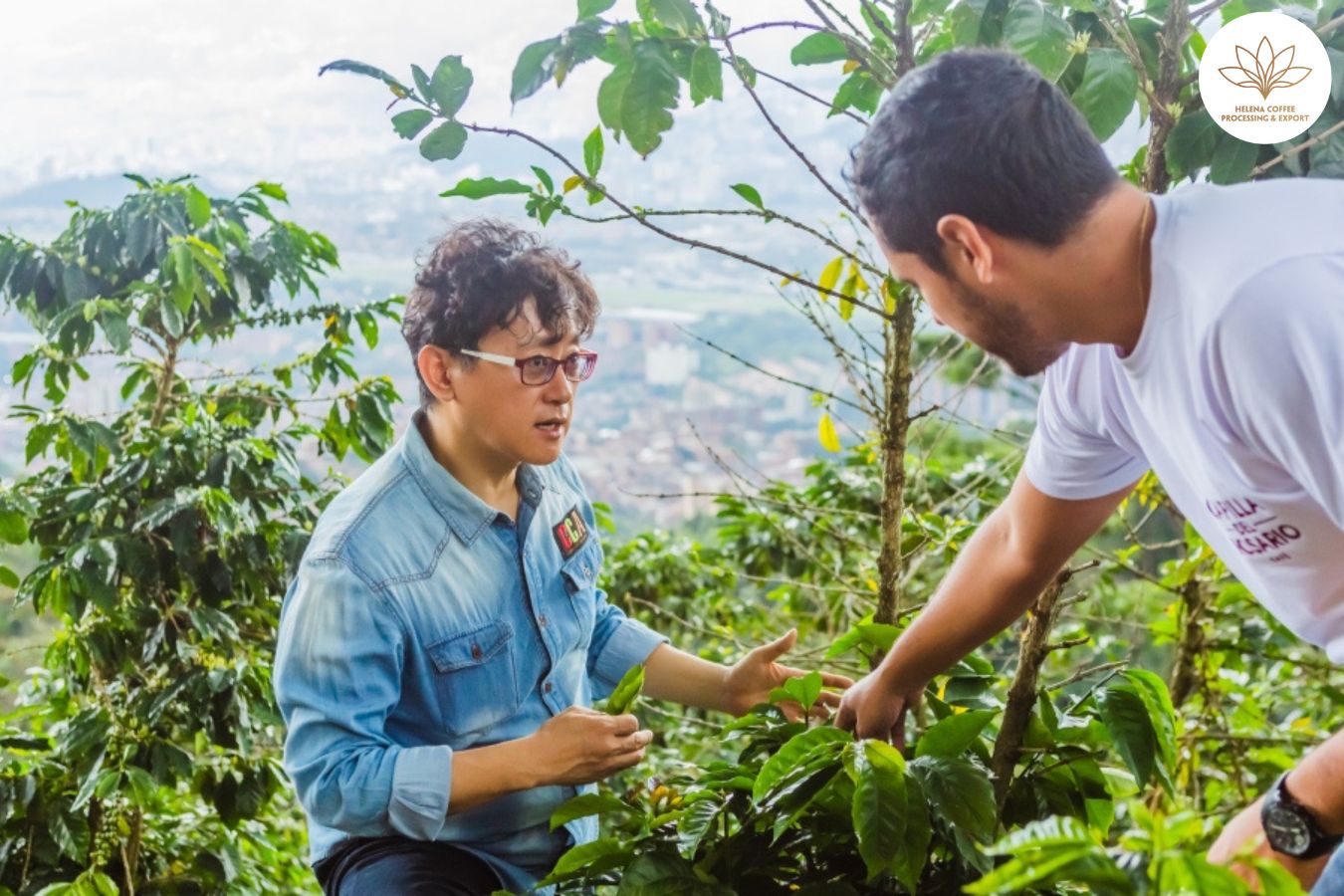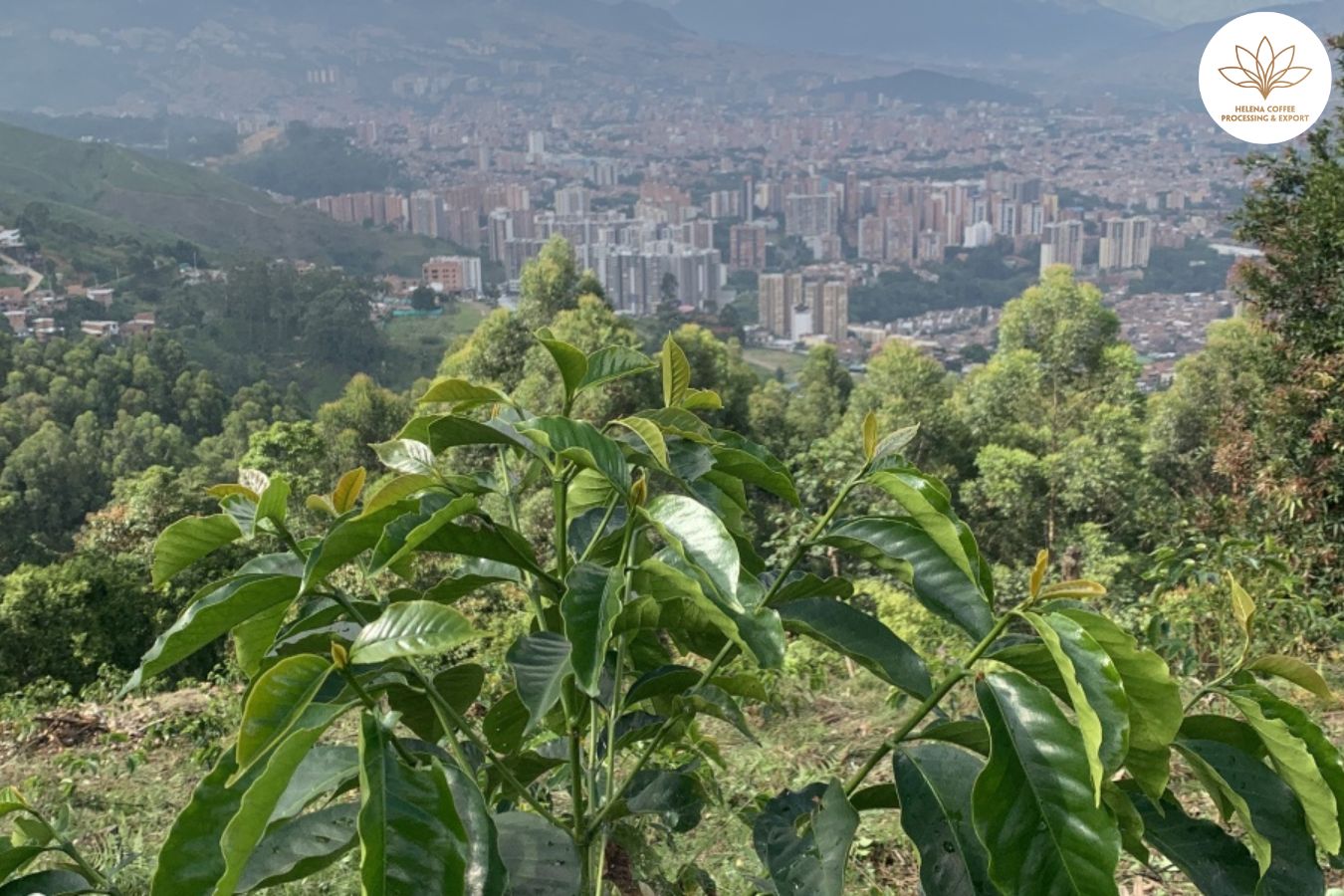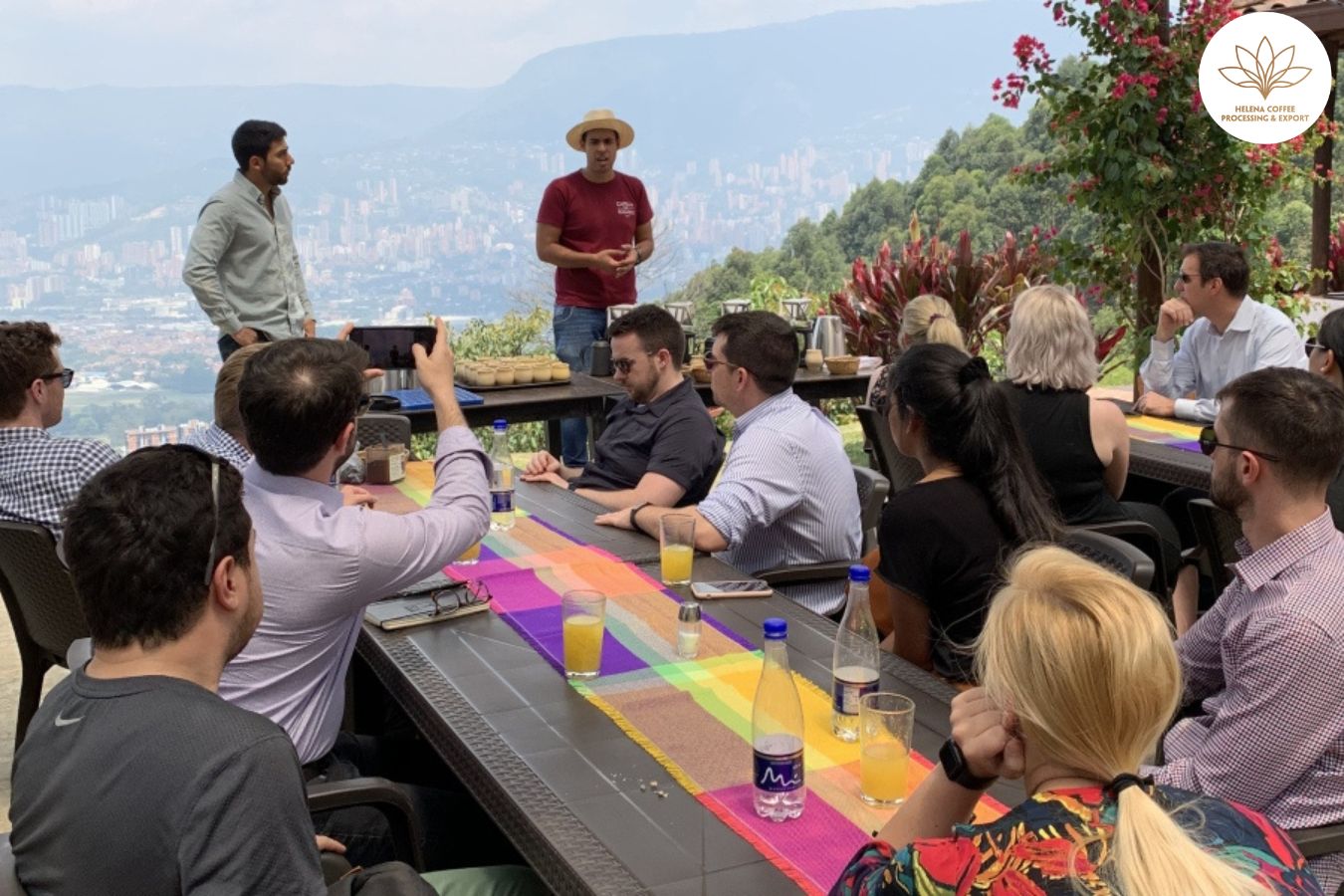
Fincas urbanas de café en Medellín: The Deep-Rooted Coffee Culture of Medellín and its Enduring Farms
For years, Medellín’s cultural ties to coffee traditions have played a significant role in shaping the identity of the city and its people. However, the urban sprawl spurred by population growth has seen the transformation of old coffee estates into modern structures.
As time has progressed, many have abandoned their crops in pursuit of the sometimes illusory progress offered by urban life. In defiance of this trend, a number of coffee farms stand firm, striving to preserve the aromatic legacy of mucilage, pulp, and roasted beans on the outskirts of Medellín.
Presently, the city is home to approximately 400 coffee-growing families, mostly consisting of small-scale producers. Yet, many find themselves in need of secondary employment to sustain their livelihoods. To grasp the reality of urban farming in this Colombian region, I engaged in conversation with Rosa Eusse and José David Posada, two local coffee growers. Continue reading to discover the insights they shared about the persistence of coffee culture amidst urban encroachment.
Navigating the Urban Context
The Land Management Plan (POT) serves as a pivotal tool in directing the physical development and land use across Colombian territories. While recent trends have seen Medellín expanding vertically with the rise of towering structures, this framework of territorial management ultimately classifies areas as urban or rural.
Tax obligations deeply intertwine with the challenging landscape of coffee farming, as land administration and usage carry their costs. While being designated as a rural area can offer some tax relief, it’s a precarious balance for those located within urban boundaries.

“Realizing that despite the complexities of traditional coffee farming, it was no longer profitable, we decided to delve into the world of specialty coffee. However, our taxes are approximately 70 times higher because we’re inside the city,” explains José Posada, owner of the Capilla del Rosario farm in Medellín’s Belén neighborhood.
Furthermore, navigating the legalities can be daunting for many farms due to the various social issues that have plagued Medellín in recent decades, such as violence, drug trafficking, petty crime, and land invasions. The influence of globalization and innovation, areas where Medellín is a poignant example, continues to diminish traditional farming practices.
In discussing labor, it’s critical to acknowledge that the dwindling workforce in rural areas is already a leading cause of increased production costs for coffee and other agricultural activities. This reality becomes even more complex in the city, where manual agricultural labor directly competes with large industries and more formalized employment opportunities, exacerbated by the constant migration of harvesters.
Moreover, coffee labor isn’t limited to harvesting. Other tasks such as hole digging, planting, weeding, pruning, and fertilization also demand a workforce that is increasingly scarce and hard to find. Here lies another significant challenge for producers, one that is even more pronounced in urban areas.
Collaboration and Diversification in Urban Coffee Farming
“Upon starting our work in La Sierra neighborhood around 35 years ago, one of the agreements we made with a neighbor was to work closely together, and that’s how we managed the tasks on the farm,” Rosa Eusse recalls, reflecting on the collaborative spirit that drives coffee cultivation within her community and at her farm, La Increíble.
Collaborative efforts are vital when securing labor for coffee farming, and they also contribute to cost reduction and enhanced financial sustainability. In return for this cooperation, participants offer their labor to other productive units during times when their own farm duties are complete.
In an environment where production costs are rising and labor is increasingly scarce, alternative activities related to coffee farming, such as tourism, and the cultivation of associated products like vegetables, flowers, and fruits, can make a significant difference for the survival of urban coffee farms.
José David, for instance, shares his approach to diversification: “Facing higher taxes, we began to explore different avenues: education, tourism, and specialty coffee. We started with specialty coffee because it’s the most time-consuming, considering how long it takes for the trees to mature.”
He then expanded into education, forging partnerships with various universities and institutions to leverage his farm’s location to educate people about consumption, production, and the entire supply chain. Lastly, he ventured into tourism. He points out that this sector offers “a substantial opportunity because you can sell roasted coffee directly from the farm and capitalize on the global marketing that Colombia has done for coffee.”
Sustaining Urban Coffee Production
Educating the community about coffee consumption highlights the value of coffee culture and bolsters the cultural identity of Medellín. When the younger population is engaged, it ensures the perpetuation of a coffee tradition that now harnesses new technological tools to bridge the gap between urban dwellers and rural practices.
Rosa asserts, “The situation in the countryside is becoming more difficult because there are few who want to work there nowadays. That’s why, in our project, we collaborate with local schools, inspiring the youth so that they might be the ones to support the countryside in the future, creating a symbiotic benefit.” Utilizing this geographical proximity is an advantage that few coffee farms in producing countries have, as they are often remote and hard to reach.

In this context, Medellín’s urban coffee farms are readily accessible to citizens and the thousands of tourists who visit the city each year. This proximity fosters interaction between the 400 coffee-farming families and consumers, making engagement a tangible goal.
Additionally, education about the consumption and production of distinctive coffees is influential in involving young entrepreneurs who see coffee as a viable livelihood. Schools and technical programs within the city are also advocating for the consumption of more local products and a more direct trade, which can increase profitability and give deserved recognition to the producers and their efforts.
As Rosa points out, “It’s essential to show the neighborhood’s youth what we do on our farm, to pass on knowledge that sparks their interest and to demonstrate that there are opportunities to thrive through coffee,” all without necessarily having to leave the urban environment—a pressing concern for the upcoming generations.
Urban Farms in Medellín: Beyond Cultivation
It’s crucial to acknowledge that Medellín’s urban farms are more than just sites for crop cultivation or leisurely retreats. They act as vital biological corridors that facilitate the preservation of local wildlife, native trees, and ecosystems.
Urban coffee farming in Medellín is a testament to resilience, evidencing that coffee cultivation transcends its need for adaptation. Through industriousness, effort, passion, drive, solidarity, and a spirit of assistance, coffee farming manages to enact meaningful transformation within the community.
FAQS: